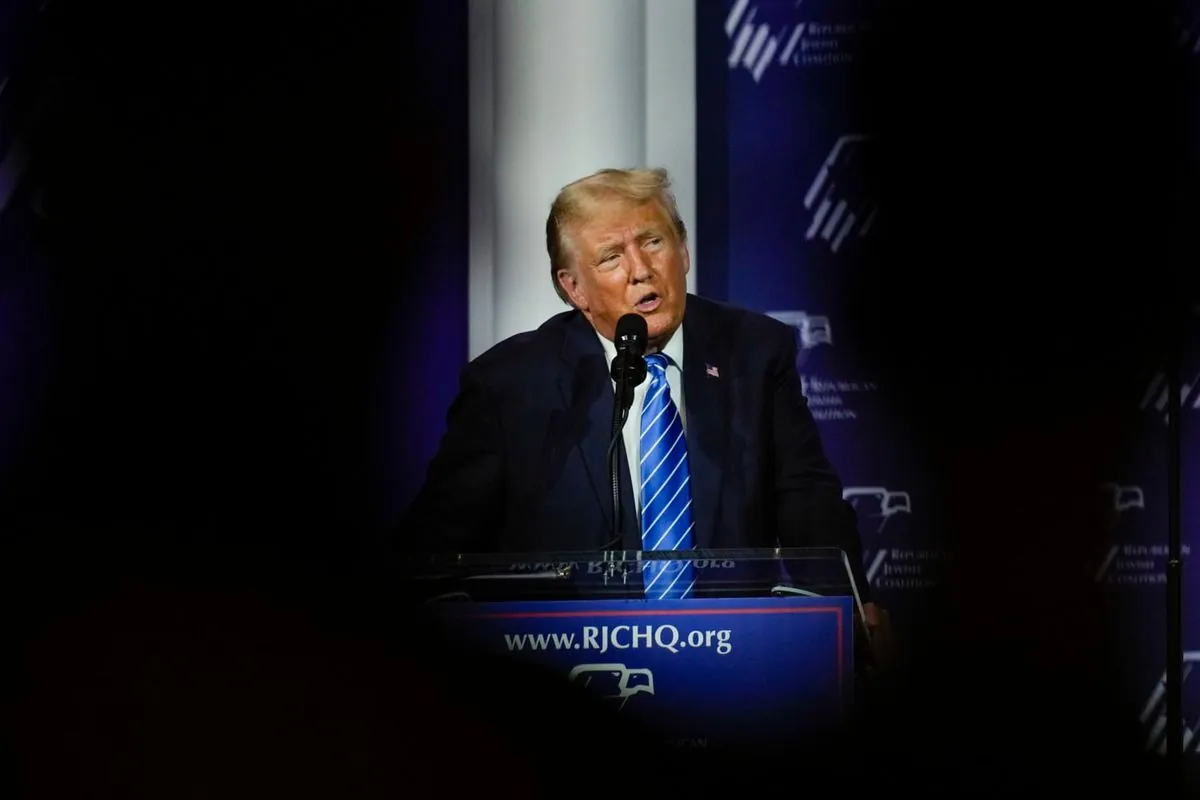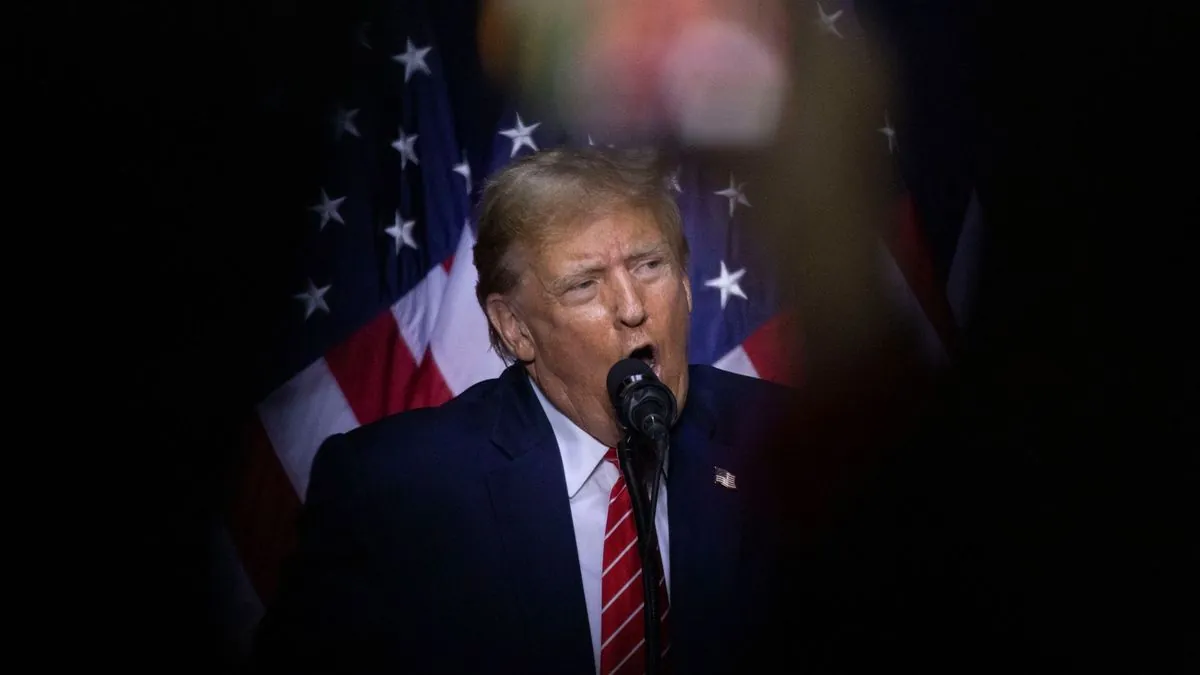Trump's Controversial Remarks on Jewish Voters and Israel's Future
Former President Trump criticizes Jewish Democrats and makes unsubstantiated claims about Israel's future under VP Harris. His comments contrast with actual Jewish voter preferences and current administration policies.

In a recent address to the Republican Jewish Coalition, former President Donald Trump made controversial statements about Jewish American voters and the future of Israel. The speech, delivered via satellite to the coalition's annual leadership summit in Las Vegas, touched on several sensitive topics related to Jewish voters and U.S.-Israel relations.
Trump repeatedly questioned the loyalty of Jewish Americans who vote for Democrats, despite polls consistently showing strong support for the party among this demographic. He stated, "I don't understand how anybody can support them — and I say it constantly — if you had them to support and you were Jewish, you have to have your head examined." This rhetoric has been criticized as antisemitic by some observers.

The former president also made unsubstantiated claims about the future of Israel under a potential Kamala Harris presidency, asserting without evidence that "Israel will no longer exist" if she becomes president. This statement contradicts Harris's own public declarations of support for Israel's security and right to self-defense.
Trump addressed the ongoing Israel-Hamas conflict, claiming that the war would not have started if he were still president. He expressed impatience with the duration of the conflict, stating, "You have to win and you have to win fast." These comments come in the context of the recent recovery of six Israeli hostages' bodies in Gaza, including Israeli-American Hersh Goldberg-Polin.
The speech highlighted the complex relationship between American politics and Jewish voters. Despite Trump's assertions, Jewish voters have consistently supported Democrats by wide margins. According to the Pew Research Center's validated voter survey, 70% of Jewish voters supported Biden in the 2020 election, compared to 27% for Trump.
Halie Soifer, CEO of the Jewish Democratic Council of America, denounced Trump's repeated criticism of Jewish Americans who vote Democratic, stating, "This is antisemitism, plain and simple."
The event also showcased Trump's support within certain Jewish Republican circles. Miriam Adelson, a prominent Republican megadonor, introduced Trump as "our best friend" and expressed eagerness for his potential return to the White House.
As the political landscape continues to evolve, the relationship between Jewish voters, Israel, and U.S. politics remains a complex and often contentious issue. The ongoing Israel-Hamas conflict, with its roots dating back to the establishment of Israel in 1948, continues to shape discussions and policies in American politics.
"Who are the 50 percent of Jewish people that are voting for these people that hate Israel and don't like the Jewish people?"
This statement, along with Trump's other remarks, underscores the ongoing debate about the intersection of Jewish identity, political affiliation, and support for Israel in American politics.


































